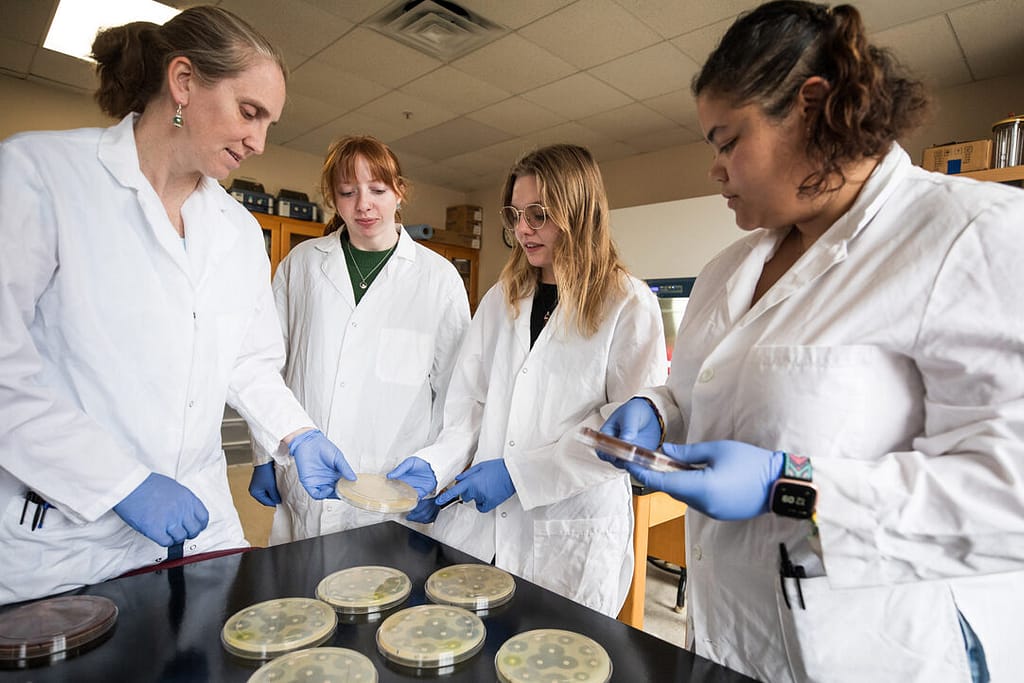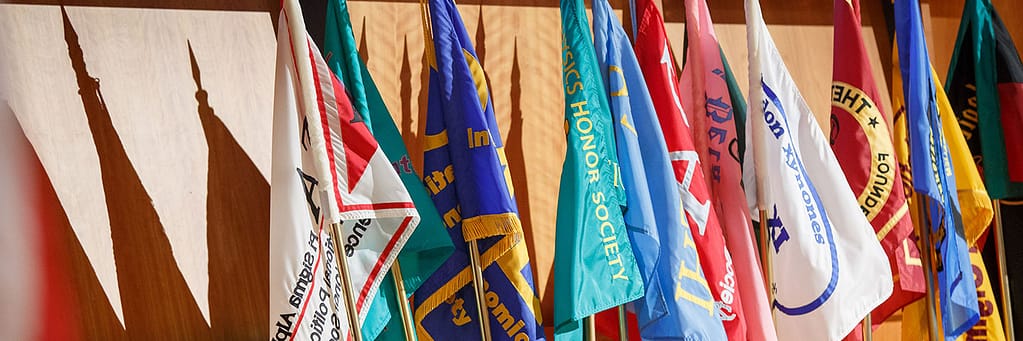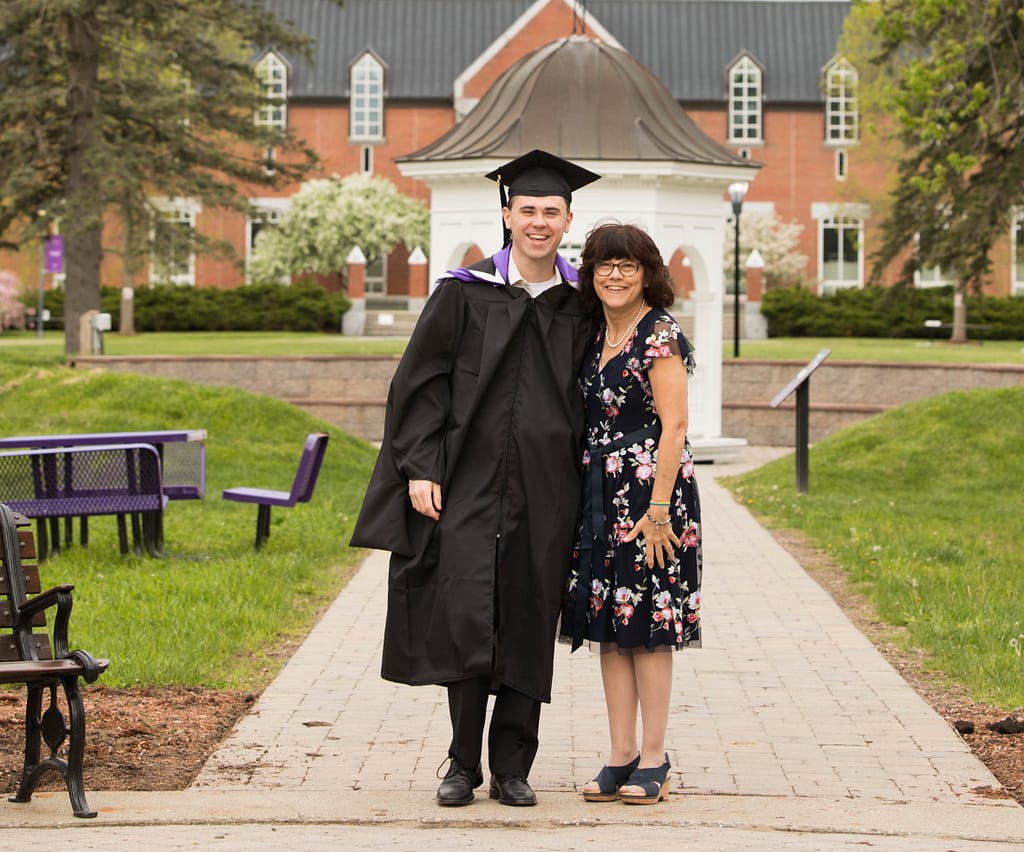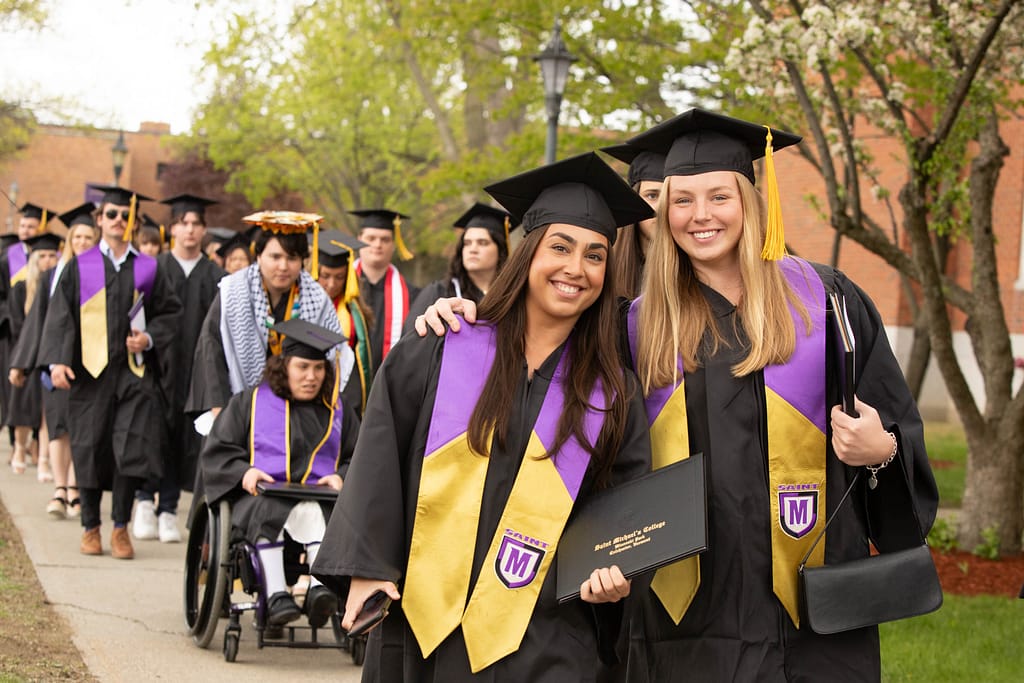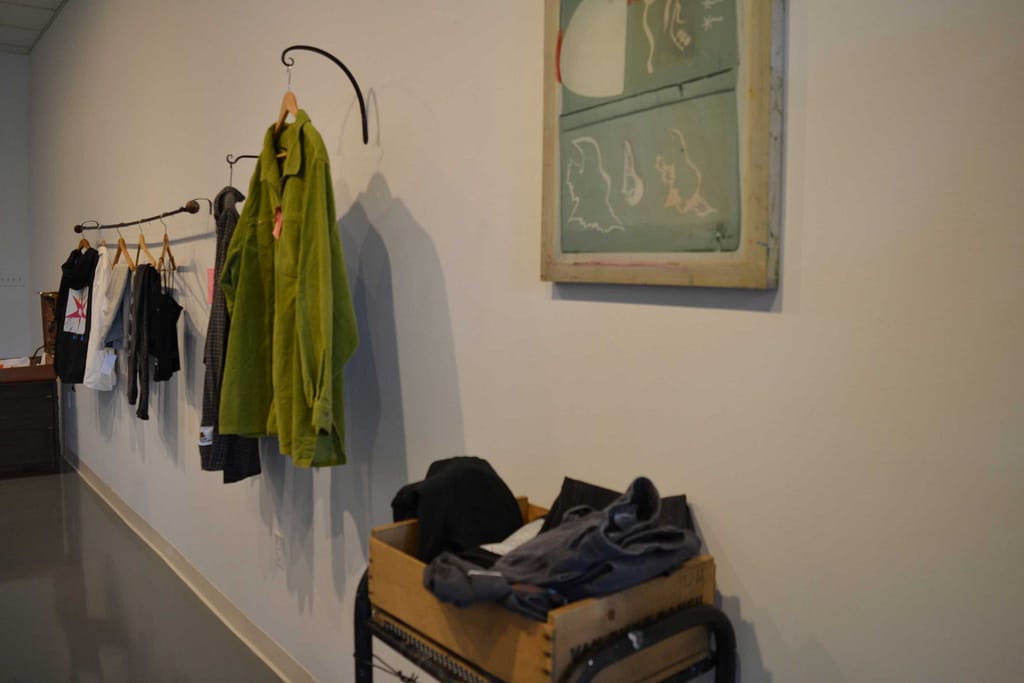Saint Michael’s Sutherland lecturer: Eating is complicated, but philosophical thinking helps
The number of moral questions that arise from eating – and the number of bad ethical options for solving those questions – can leave people feeling trapped and cynical, according to University of Vermont Philosophy Professor Tyler Doggett.
However, philosophy can provide some relief to those feeling trapped, Doggett said. This is good news for those who strive to approach eating and the food system from a moral perspective.
Doggett offered these thoughts as the chosen speaker during the annual Sutherland Lecture on March 19. The Sutherland Lecture Series has brought leading thinkers and scholars to campus to speak on issues in the liberal arts and sciences since 1998, thanks to a generous gift from former College Trustee Donald J. Sutherland. This year’s event was also co-sponsored by Saint Michael’s College’s three Centers for Social Impact: the Patrick ’61 and Marcelle Leahy Center for the Environment, the Center for Global Engagement, and the Center for Equity and Justice.
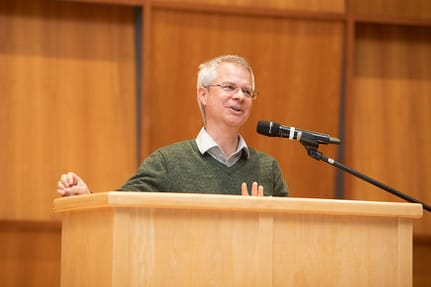
Tyler Doggett (Photo by Cat Cutillo/Saint Michael’s College)
Doggett has studied and taught courses on the ethics of food systems, eating, and altruism. His work centers around ethics, philosophy of mind, early modern philosophy, and metaphysics.
He said the issues he spoke about during the lecture were issues that “have disturbed me for a long time and that, up until recently, I never had a chance to contemplate.”
Doggett outlined his thought process during the event – leading attendees through the different responses to the complexity of the issue, things they can do about it, the negative outcomes or repercussions of those actions, and how philosophy can help.
“You really are just one tiny cameo of an actor on an enormous stage in a play that lasts forever,” Doggett said. “There is all kinds of bad news, and there are terrible things that happen in the food system.”
Eating is complicated, and each food choice comes with its own moral questions, Doggett said. For example: is killing animals for meat to eat moral? And: if the fruit or vegetable was harvested by a worker that is mistreated by the companies they serve, is it morally okay to purchase and eat the produce?
Doggett said philosophy helps him feel better about the moral questions that arise around food systems. He said it has helped him change his attitude about minor moral victories, viewing these as positives rather than as not enough. He said it has also helped him focus on the effects of the little morally positive things instead of fixating on how problematic the system may be.
Overall, Doggett said philosophy has helped him focus on the moral changes he can make within a system that is complex and often frustrating. The work that is most important in these situations is often the work that is ongoing toward improving the system through small – but still significant – victories, he said.
There’s no one simple trick to right all the morally bad options within the food system, Doggett said. But, people’s constant work to change small things can eventually turn the tide so the options don’t all stay bad.
